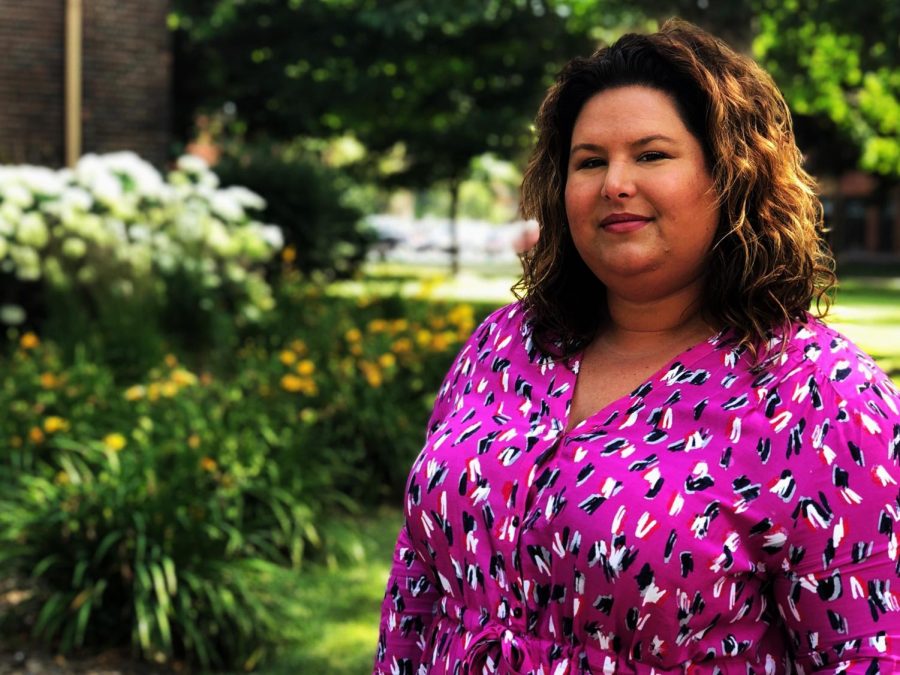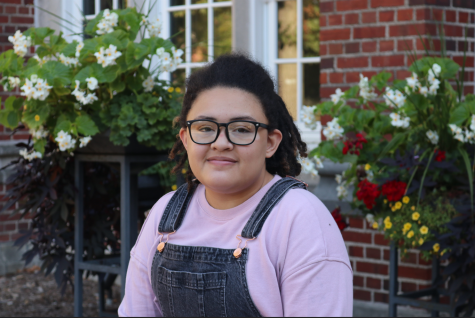Simpson community encouraged to participate in 21 Day Equity Challenge
September 16, 2020
On Sep. 4, the Simpson College Assistant Director of Diversity, Inclusion & Access, Madeline Cano sent a campus-wide email encouraging the Simpson community to participate in the 21 Day Equity Challenge.
Cano, wanting to ensure the recent protests on campus did not go forgotten, felt that Simpson students, faculty and staff needed to take real steps toward change, beginning with self-education. The 21 Day Equity Challenge seemed to be the best place to start.
“The reality is if we truly want to change things, we can no longer make excuses,” Cano said. “The reality is people of color don’t get a choice. I don’t get to stop caring about this. The fact [non-marginalized students, faculty and staff] have a choice? That’s power right there. Make the commitment to an hour a week or an hour a day, manage your time, do what you have to do. If you really do care, and you’re saying you want to be a part of this, that means you have to try.”
While open and encouraged to everyone, the core of the 21 Day Equity Challenge is to provide white students, faculty and staff with resources to understand and combat racism without putting the burden on people of color on campus. Simpson community members are encouraged to sign up to receive resources over the 21 day period through email, though Cano stresses the work does not end with attending protests or participating in education challenges.
“It’s similar to what students learned in their bystander training,” Cano said. “There are different ways to be an ally and to be an accomplice. Simply not saying racist things doesn’t mean you are being actively anti-racist. Being anti-racist means if you see something happening to another student or another person, on or off-campus, you’re utilizing your power to support the person being attacked. It’s action-oriented. Being ‘non-racist’ is very passive. Being anti-racist means you have to put in the work and be active.”
The challenge, started by Dr. Eddie Moore, Jr. and introduced to Iowa by United Way, runs from Oct. 5 through Nov. 2. The goal, according to the challenge’s website, is for the participant to understand the history of racism and its lasting effects. To do this, the participant signs up online to receive emails every weekday containing resources such as readings, videos and podcasts. All resources are free and can be utilized in both individual and group settings.
“The 21-Day Equity Challenge is a powerful opportunity for shared learning and growth and invites central Iowans to develop a deeper understanding of how inequity and racism affect our lives and community,” the website said. “The probing of issues and potential solutions come from our research and conversations will help thousands of central Iowans unite to learn and grow together in making a positive difference for our future.”
Ultimately, Cano hopes the 21 Day Equity Challenge encourages the Simpson community to commit to self-reflection, particularly how members of the community may have contributed to white supremacy culture both on and off-campus. But she understands everyone is coming to this process from varying places, be it growing awareness of issues or unlearning harmful behavior.
“I’m hoping it will prompt more people to organically talk about these topics,” Cano said. For people who don’t live it every day, it’s very uncomfortable for them. They would rather avoid it than talk about it. I’m hoping these resources allow people to dive in and understand the reality people of color live with every day, and to be actively anti-racist, not just nice.”







